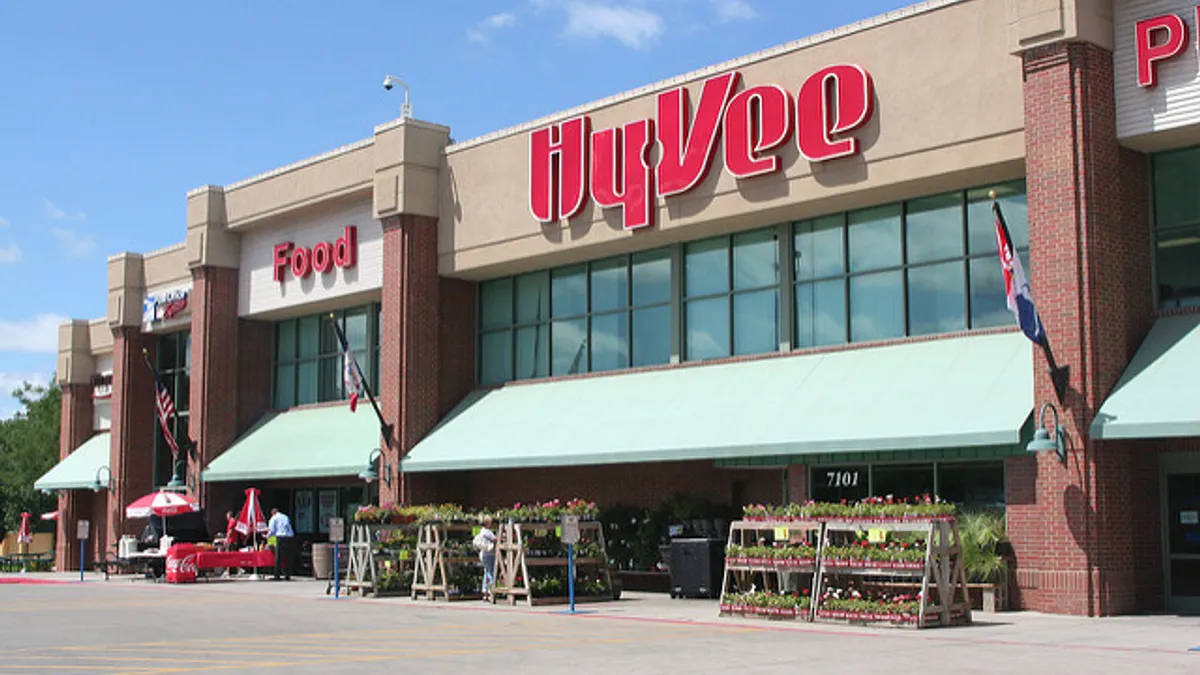Dive Brief:
- Since opening its first store in the Twin Cities area two years ago, Hy-Vee has taken market share from long-time competitors such as Cub Foods and Target, according to Minnesota Public Radio. Hy-Vee will operate eight stores in the region by the end of this year and has plans to open seven more.
- Supervalu-owned Cub Foods, which is the largest grocer in the market with 70 stores, is feeling particular pressure from the Des Moines-based company. “Hy-Vee sees Cub as an ineffectual operator and low-hanging fruit,” an analyst told MPN.
- Other recent entrants to the market include Aldi, Trader Joe’s and Fresh Thyme Farmers Market. Sources expect more new players to enter the market, but say established retailers aren’t going down without a fight. For example, a Cub Foods with updated produce and a prepared foods departments recently opened across the street from a Hy-Vee.
Dive Insight:
Across the country, markets such as the Twin Cities are being disrupted as top-notch outsiders muscle in on established players. In Indiana, longtime stronghold Marsh has seen its fortunes dwindle as Kroger, Fresh Thyme and a host of other competitors have moved in and claimed market share. In Florida, Publix is fighting back the advances of Walmart and discounter Aldi. On the East Coast, Lidl is about to take on a host of legacy supermarkets.
What can longtime retailers do to protect their home turf? Many are upping their promotional game and remodeling their stores around fresh and prepared foods. The problem is strong retailers like Hy-Vee and Kroger already have a strong focus on fresh, as well as a host of other unique products and services. Cub Foods is spending millions to freshen up its stores, but Hy-Vee will still have it beat on health and wellness initiatives, e-commerce, and with its Market Grille restaurants.
In this environment, it’s less important for grocers to be good in many areas and more important for them to be great in one or two key spaces. Having the best bakery in town or the best made-to-order lunch selections, for instance, provides a key differentiation point that gives shoppers a reason to visit.
Many small, successful grocers stay in business because they have a signature product or service that brings in customers. Locals and tourists alike go out of their way to buy Duper Donuts at tiny South Dayton Supermarket in New York. On a larger scale, Mariano’s in Chicago is renowned for its prepared foods.
Many grocers on the defensive are looking to match their best competitors. However, it may be more important to go a step further and think about what will distinguish them in the marketplace.









